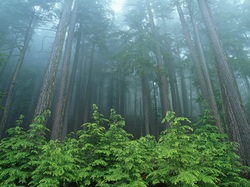
Soft wood or Hardwood?
Frequently Asked Questions and Answers
Frequently Asked Questions and Answers
I hear Hardwood is better than Softwood?
- Not true. A good quality slow grown treated softwood will resist rotting for a very long time and of course our 2-3 coats of factory applied spray paint will provide a tough outer shield against the elements. Therefore in terms of durability, modern processes and materials make softwood as reliable as hardwood.
Do you supply your windows in Hardwood?
- Yes, you can but bear in mind you should use hardwood if this is the 'look' you are wanting for your windows. For example if you like the look of mahogany we can make your windows out of mahogany. They will need to be stained twice and varnished twice and they will have to be well maintained i.e. regularly varnished. Also you need to think about how the beading will look on the inside of the sash box. For example if you have white panelling a dark bead (in front of the base sash) may look odd.
Everybody knows hardwood lasts longer that softwood?
- Does it? The mythology of hardwood can simply be explained by looking at the trees themselves. Softwood trees are evergreens
As it turns out, a hardwood is not necessarily a harder material (more dense) and a softwood is not necessarily a softer material (less dense). For example, balsa wood is one of the lightest, least dense woods there is, and it's considered a hardwood.
The distinction between hardwood and softwood actually has to do with plant reproduction. All trees reproduce by producing seeds, but the seed structure varies. Hardwood trees are angiosperms, plants that produce seeds with some sort of covering. This might be a fruit, such as an apple, or a hard shell, such as an acorn.
Softwoods, on the other hand, are gymnosperms. These plants let seeds fall to the ground as is, with no covering. Pine trees, which grow seeds in hard cones, fall into this category. In conifers like pines, these seeds are released into the wind once they mature. This spreads the plant's seed over a wider area.
For the most part, angiosperm trees lose their leaves during cold weather while gymnosperm trees keep their leaves all year round. So, it's also accurate to say evergreens are softwoods and deciduous trees are hardwoods.
But softwood is softer, right?
- Not always. We make our windows out of Redwood, traditionally used over the centuries for its long lasting durability. Redwood's high resin value makes it an excellent choice in window production. Redwood is less likely to warp, split, cup so it will look better and last longer than other woods. No other softwood holds paints, stains and other coatings better than redwood. Redwood also bonds to itself exceptionally well and all our Redwood is hand picked and graded. Our top grade Scandinavian Redwood is sourced from one of the best sawmills in Finland. And more importantly sustainable, (unlike a lot of the cheaper hardwoods which are being used nowadays)
- Not true. A good quality slow grown treated softwood will resist rotting for a very long time and of course our 2-3 coats of factory applied spray paint will provide a tough outer shield against the elements. Therefore in terms of durability, modern processes and materials make softwood as reliable as hardwood.
Do you supply your windows in Hardwood?
- Yes, you can but bear in mind you should use hardwood if this is the 'look' you are wanting for your windows. For example if you like the look of mahogany we can make your windows out of mahogany. They will need to be stained twice and varnished twice and they will have to be well maintained i.e. regularly varnished. Also you need to think about how the beading will look on the inside of the sash box. For example if you have white panelling a dark bead (in front of the base sash) may look odd.
Everybody knows hardwood lasts longer that softwood?
- Does it? The mythology of hardwood can simply be explained by looking at the trees themselves. Softwood trees are evergreens
As it turns out, a hardwood is not necessarily a harder material (more dense) and a softwood is not necessarily a softer material (less dense). For example, balsa wood is one of the lightest, least dense woods there is, and it's considered a hardwood.
The distinction between hardwood and softwood actually has to do with plant reproduction. All trees reproduce by producing seeds, but the seed structure varies. Hardwood trees are angiosperms, plants that produce seeds with some sort of covering. This might be a fruit, such as an apple, or a hard shell, such as an acorn.
Softwoods, on the other hand, are gymnosperms. These plants let seeds fall to the ground as is, with no covering. Pine trees, which grow seeds in hard cones, fall into this category. In conifers like pines, these seeds are released into the wind once they mature. This spreads the plant's seed over a wider area.
For the most part, angiosperm trees lose their leaves during cold weather while gymnosperm trees keep their leaves all year round. So, it's also accurate to say evergreens are softwoods and deciduous trees are hardwoods.
But softwood is softer, right?
- Not always. We make our windows out of Redwood, traditionally used over the centuries for its long lasting durability. Redwood's high resin value makes it an excellent choice in window production. Redwood is less likely to warp, split, cup so it will look better and last longer than other woods. No other softwood holds paints, stains and other coatings better than redwood. Redwood also bonds to itself exceptionally well and all our Redwood is hand picked and graded. Our top grade Scandinavian Redwood is sourced from one of the best sawmills in Finland. And more importantly sustainable, (unlike a lot of the cheaper hardwoods which are being used nowadays)